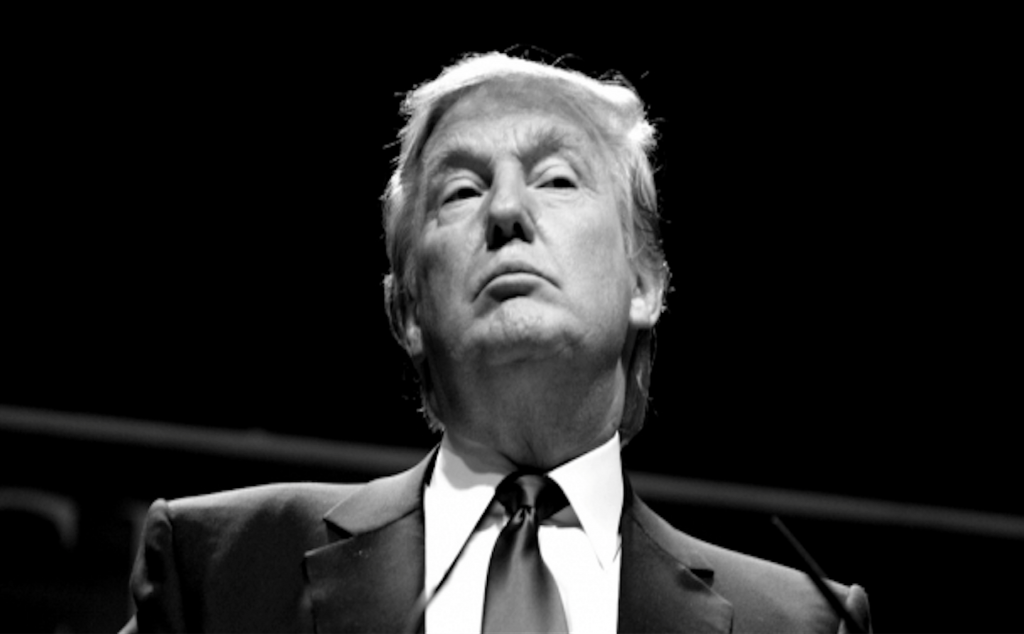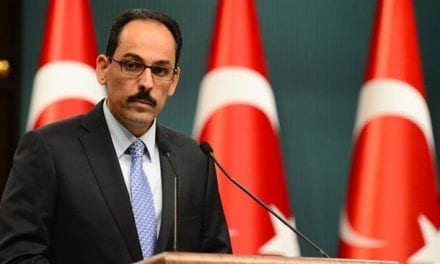They raise concerns about the president’s potential violations of the US Constitution
Congressional Democrats Are Already Warning Trump About Impeachment
Progressive Caucus Vice Chair Mark Pocan says the president must resolve “direct conflicts in both domestic and foreign policy” or face constitutional consequences.
By John Nichols
Ι mpeachment is not a legal mechanism, it’s a political act. The founders intentionally employed the catch-all phrase “high crimes and misdemeanors” to give guardians of the American experiment leeway for holding presidents, vice presidents, cabinet members, and other errant officials to account. An impeached official is not charged by a prosecutor and tried in the courts; nor is he or she jailed or fined if found guilty. An impeached official is charged by the House of Representatives, tried by the Senate, and removed from office if convicted.
That is a sufficient remedy, as the point of impeachment is to protect the republic, to preserve the rule of law, to maintain proper checks and balances and to respect the US Constitution.
Congressman Mark Pocan, D-Wisconsin, has been explaining this essential premise of the American experiment as he has begun talking in recent days about impeachment. Pocan has spoken, as members of Congress should, with an eye toward “keeping every option open to try to get this administration to function like any other administration in the past—Democrat or Republican.” “Clearly,” the congressman says, “one of those remedies is the power of impeachment.”
The Trump White House is rattled by any criticism, any expression of dissent. So it should come as no surprise that Trump aides have attacked the very mention of “impeachment” as “extreme rhetoric from a completely out-of-touch party.” But there is nothing extreme about noting that impeachment was fashioned as a tool for holding members of the executive branch to account.
When Pocan went to the floor of the House earlier this month he referenced the impeachment power calmly, thoughtfully, and with respect for a separation of powers that demands vigilance on the part of a legislators from both parties.
Using a map of the Middle East to illustrate “another round of questions about President Trump’s potential conflicts of interest over his business holdings,” Pocan pointed to the countries that were targeted by Trump’s executive order restricting travel from predominantly Muslim countries. “These seven countries do have at least one thing in common,” he noted. “According to Bloomberg News, the Trump Organization does not have business or pursued business deals in any of them.”
In contrast, he explained, Muslim-majority countries where the Trump Organization has had development projects and licensing deals—such as Saudi Arabia, Turkey, and possibly Egypt—were not included in the presidential executive order. “These countries were excluded from the executive order despite being home to many of the terrorists who carried out 9/11,” the congressman told the House.
“I’m not saying we should ban people from these countries,” Pocan was quick to add. “I firmly oppose any ban based on nationality or religion. But it is unacceptable that business interests have played potentially a role in such a destructive policy, a policy that also makes our country less safe in the long run.”
What Pocan was saying is that “It’s time for the president to stop defending his divisive and unconstitutional executive order and start being transparent about his business interests. Every president in the modern era has released tax records to ensure the American people that their actions will not be impacted by financial holdings.”
Focusing on concerns about the president’s potential violations of the US Constitution’s Emoluments Clause, Pocan described instances where Trump has disregarded safeguards “designed to prevent corruption and foreign influence over policy decisions.”
“These are just tip of the iceberg examples of direct conflicts in both domestic and foreign policy under this president,” said Pocan, who addressed Trump directly when he said: “Mr. President, it’s time for you to fix this. One, divest your business holding immediately to remove any suggestion of conflicts in your decision making. Two, show us your tax returns so financial interests are transparent to the American people. And three, get rid of your unconstitutional executive order, which will make us less safe and only serve to embolden our enemies.”
Should the president fail to address potential conflicts and embrace necessary transparency, Pocan said, “we’ll have to take other actions, including legislative directives, resolutions of disapproval and even explore the power of impeachment.”
There are plenty of Americans who agree. Forty-six percent of registered voters surveyed this month by Public Policy Polling indicated that they favor Trump’s impeachment, while another 9 percent refused to rule out the prospect. (“The public is already there…,” Pocan told The Bill Press Show last week. “Clearly, this is something the public wants us to keep available if necessary.”)
Congressman Joaquin Castro, D-Texas, has warned that, if the president orders federal agencies to ignore judicial rulings halting parts of his immigration order, “There should be a resolution of censure. And if he does it again, there should be articles of impeachment.” Congresswoman Maxine Waters, D-California, says it is “legitimate” to discuss impeachment, explaining that “I have not called for the impeachment yet. He’s doing it himself.” John Bonifaz, the well-regarded constitutional lawyer who serves as president of the group Free Speech for People, argues that “there must be an impeachment investigation initiated in the United States Congress based on the violations of the emoluments clauses, the foreign emoluments clause and the domestic emoluments clause, both of which make clear that the president of the United States cannot engage in the kind of corruption that we’re seeing now of the Oval Office.” More than 850,000 Americans have signed petitions supporting this argument.
Congressman Pocan has put the discussion of impeachment in perspective—and he’s also put the president on notice. The people are agitated and the founders empowered Congress to respond to such agitation by holding errant presidents to account.
It was not a congressman from Wisconsin who observed, “No point is of more importance than that the right of impeachment should be continued. Shall any man be above Justice?” It was George Mason, speaking to the Constitutional Convention in 1787.



















